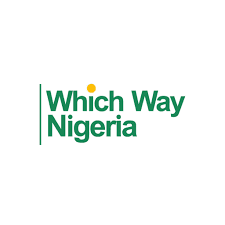While governments may spearhead the contemplation and structuring of a nation's developmental trajectories, they must be substantially more accountable to their citizens.
In an unprecedented move on the African continent, prominent Nigerian CSOs, including Spaces for Change, BudgIT, Africa Polling Institute, Nextier, Accountability Lab, and Dataphyte, among others, joined forces to launch the groundbreaking "Which Way Nigeria - Citizen Scenarios to 2060" (CS60) initiative. The primary objective is to explore uncomfortable yet essential questions about Nigeria's future:
Can Nigeria effectively manage its projected population of 400 million by 2050?
What are the resource implications for sustaining a population that could potentially become the third largest in the world?
What does Nigeria envision for its post-oil era?
How can the country proactively address the impacts of climate change?
What governance innovations are imperative to eradicate energy poverty, foster economic opportunities, and ensure universal access to decent health and education by 2060?
How can strategic urban planning yield positive impacts on the population, encompassing economic, social, and psychological dimensions?
Is it possible to foster a culture of compromise, dialogue, and empathy (CDE) to mitigate conflicts and toxic dynamics, especially between conflicting parties like farmers and herders?
CS60 strives not only to answer these questions but to provide a tangible, practical, and impactful narrative guiding the journey from today (A) to 2060 (B). It aims to offer a clear, straightforward process, roadmap, and systematic approach to bring about the necessary change that the country and its citizens require and deserve.
Moreover, in many scenarios processes, scenarios are the end product, the ultimate outcome. However, for CS60, scenarios serve as a single step—a roadmap guiding the achievement of these scenarios through a strategic blend of leadership, policy reform, and both "soft" and "hard" investments.
Unprecedented in Africa, CS60 introduces "Scenarios with only Citizens." While governments and the private sector predominantly monopolize scenarios, often focused on economic considerations, CS60 introduces a groundbreaking shift by involving alternative organizations to contribute fresh perspectives supported by examples from other nations. Citizen-led scenarios empower these perspectives to endure, offering a transformative force extending far into the future.
"Unveiling Four Scenarios through Comprehensive Workshops"
Over 30 CSOs convened virtually in 2021 and 2022, collaborating with the scenarios firm Capful and international experts across four workshops. These workshops facilitated inputs through questionnaires, interviews, and follow-ups on specific questions related to energy, transport, health, education, climate change, and accountable governance.
The outcomes yielded four scenarios representing potential developmental paths over the next two generations, from the most promising to the least: Green Land, Land of Hustle, Land of Lost Hope, and Blood Land.
Scenarios are not a novelty in Africa, with various foundations funding them regionally and nationally. CS60 differentiates itself by viewing scenarios as just the initial step, aiming to provoke and inspire not only CSOs but the entire population to comprehend potential futures.
The second phase involves creating desired trajectories, with CSOs developing loose five-year plans for potential inputs to Green Land in 2060. These plans explore how policy, programs, and culture can strategically facilitate the envisioned sustainable and resilient Nigeria.
With scenarios as a foundation, CSO working groups embark on a backward journey from 2060, crafting short five-year plans with specific milestones linked to the implementation of policies, renewable energy, indigenous food production, access to clean water, and sanitation. The third step establishes an independent national secretariat tasked with evaluating the government's performance annually, emphasizing accountability and placing "Which Way Nigeria" at the forefront of national discussions.
"Change from Within: No Future Without Empowering Citizens"
Transformation requires a collective, internal effort—no external savior on a white horse. It demands an honest self-reflection on the country's current state and the envisioned legacy for future generations. A vision alone is insufficient; sustainable change necessitates intergenerational dialogue, a sustainably financed process, and an unbiased evaluation of progress, especially in the face of acute challenges like the recent devaluation of the Naira.
CSOs and citizens worldwide grapple for a voice as civic space shrinks and activism becomes increasingly precarious. Governments, as the administrative bodies for nations, must enhance accountability to citizens. The world faces crises, demanding governments focus on citizens' long-term desires rather than fleeting electoral promises.
"Citizen Scenarios" represents a "big bet" to achieve a different Nigeria. This approach could potentially be introduced in other countries. As challenges compound and resources dwindle, it's time for innovative minds to collaborate imaginatively in addressing these issues. Empowering Change from Within" is more than a slogan; it's a call to collective imagination and innovation to shape a life worth living for future generations.
